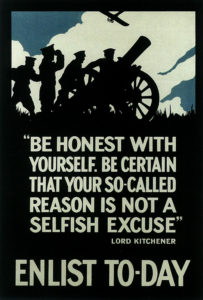Short answer today in response to a reader’s question:
How should I talk about my education on my resume?
Some job descriptions will make an explicit demand about your education:
BA/BS degree in a STEM field such as Computer Science, Mathematics or Statistics
Don’t let that put you off applying if you don’t have it — simply do not mention and part of your education. These requirements are very rarely real, and the further you can get through an interview process without it coming up then the more of a chance you’ve had of demonstrating that you’re an excellent candidate for role in-spite of not having the educational background. Experience is almost always a good substitute, but the HR Person or recruiter who’s the first person to look at your resume may not know this.
I started my career straight out of high-school and didn’t have any form of degree. Mentioning my high-school grades (A-Levels, IB grades, diploma, GED or whatever) would have simply drawn attention to this, doubly so as my high-school grades were nothing to be proud of. I applied for and got several roles that had strong suggestions that they were intended for recent graduates. But it only came up towards the end of the interview process by which time I’d had time to show evidence of my existing technical skills.
If you have a degree — undergraduate or post-grad — treat it just like you’d treat your work experience.
If it’s unrelated or tangentially related to the job you’re applying for, then subject, award, and dates are probably sufficient. Any degree that didn’t have a strong programming component in it probably falls in this category.
If it’s strongly related, treat the degree just like you would a specific job. Pull out skills that you used, projects that you worked on, and interesting challenges tackled. See: writing up a work history that matters.
Finally: people are easily impressed by impressive degrees. A few years I undertook a part-time MSc in Software Engineering at a well-known university, and it really opens doors. If you went to a highly competitive university, consider pushing the education section of your resume right up to close to the top. External recruiters and HR people are easily impressed by shiny things and take it seriously.
Your undergraduate degree in Forestry Management from Springfield A&M deserves a small note at the end of your resume (if you’re a programmer — if you’re applying for a forestry management role, go large) with dates and award. You MSc from Oxford in Software Engineering belongs right at the top, with an exposition on what you learned from it.
Remember: your resume is simply a tool to get you an interview, and talk about things in that interview. Omit anything that would be better explained in the interview (eg: you don’t have a degree), or which isn’t explicitly focused towards getting that interview.

 I don’t want to be that guy, but it’s worth pointing out before we get to the sneaky tricks, that the best solution here for writing up your open-source experience is to go and get involved in open-source projects.
I don’t want to be that guy, but it’s worth pointing out before we get to the sneaky tricks, that the best solution here for writing up your open-source experience is to go and get involved in open-source projects.